Kwon Eilhann E., professor of the Department of Earth Resources and Environmental Engineering, Kim Ki-hyun, professor of the Department of Civil and Environmental Engineering, Professor Paik Un-gyu and Professor Sun Yang-kook of the Department of Energy Engineering, and Yoon Chong-seung, professor of the School of Materials Science and Engineering (professor name: in alphabetical order), were selected as the "Highly Cited Researchers (HCR) 2022" by global research and analysis company Clarivate.
On November 16, Clarivate announced the top 1% of researchers with the highest number of citations based on their data and information analyzed by experts in quantitative bibliography. There were 63 Korean researchers (excluding overlapping). Among them, professors Kim Ki-hyun, Paik Un-gyu, and Sun Yang-kook were selected as the world's top 1% researchers this year again following last year.
A Study on the Maximization of Carbon Utilization to Change the Paradigm of Waste Resources
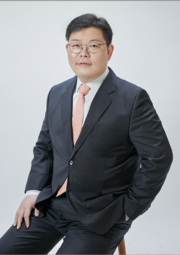
Kwon Eilhann E., professor of the Department of Earth Resources and Environmental Engineering, was named the top 1% researcher in the cross-field division, where his research was found to have had a high influence on researchers in other fields. Professor Kwon has been recognized for his excellent results in the fields of carbon neutrality and waste-utilizing at the global level. In terms of carbon management, he aims to maximize carbon utilization in the thermochemical process. Detailed research topics include waste-utilizing of carbon dioxide and biofuel production using porous materials.
In particular, research on carbon dioxide utilization contributes to increasing the recovery of useful resources by increasing the available carbon in the process. Professor Kwon's carbon dioxide utilization technology is expected to be the starting point for the paradigm shift of waste-utilizing technology. In recognition of this achievement, he was elected as a regular member of the Korean Academy of Science and Technology.
More than 30 years of environmental pollution research...Advanced technology for measuring harmful substances in the atmosphere
Kim Ki-hyun, professor of the Department of Civil and Environmental Engineering, was named in a total of two categories this year following last year, including the "Environment and Ecology" and the "Engineering" field. "Environmental and Ecological" has been selected for five consecutive years and "Engineering" for two consecutive years.
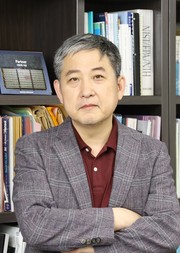
Professor Kim has studied environmental pollution for more than 30 years. The main research area is the development of air pollutant removal technology. In order to deal with the air pollution, a functional material for applying matte catalyst and adsorption technology is being developed. Professor Kim is a world-renowned researcher of the "high-efficiency air purification system" that combines aforementioned material technology and air cleaning technology. He also contributed to the advancement of pre-treatment technology based on low-temperature concentration heat desorption to accurately measure micro amounts of odors and harmful substances present in the atmosphere.
He was selected as the "Star Faculty" of Korea for establishing a management system for air pollution. In addition, in April, he was selected as the "Persons of distinguished service to science and technology" awarded by the Ministry of Science and ICT.
Development of new energy technology... Taking the lead in upgrading semiconductor device process technology
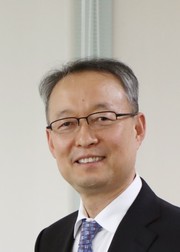
Paik Un-gyu, a professor of the Department of Energy Engineering, was selected as the top 1% researcher for the third consecutive year in the cross-field division, where his research has been confirmed to have had a high influence on researchers in other fields.
Professor Paik's main research areas are Energy Materials, Energy Devices Fabrication, and Semiconductor Devices Processes. Professor Paik is conducting research on developing new energy technologies, such as next-generation secondary batteries, that will lead energy-related industries in the future based on material design and reforming technologies. In addition, he is leading the advancement of semiconductor device process technology in cooperation with leading domestic and foreign semiconductor companies.
Leading the secondary battery research...Development of next-generation anode materials to lead the electric vehicle market
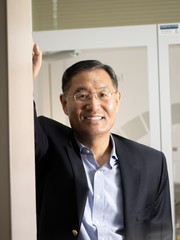
Sun Yang-kook, a professor at the Department of Energy Engineering, was named the world's top 1% researcher in the field of materials science. His name has been listed in HCR for seven consecutive years since 2016.
Professor Sun is a world-renowned authority that has been producing excellent results by studying secondary battery materials even before the secondary battery market was activated. In addition, Professor Sun developed a next-generation secondary battery anode material that maintains more than 90% of performance even after using it for 20 years only using Korean technology. Professor Sun's anode material technology is considered as a catalyst to drive the third-generation electric vehicle market.
Meanwhile, Professor Sun was awarded the Ungbi medal for the "2022 National R&D Performance Evaluation Merit" by the Ministry of Science and ICT and the "2022 Korea's Best Science and Technology Award" by the Ministry of Science and ICT and the Korea Federation of Science and Technology Organizations.
Focus on developing high-capacity, long-life cathode materials
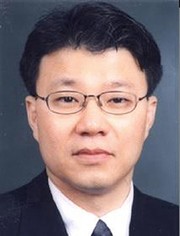
Professor Yoon Chong-seung, School of Materials Science and Engineering, was named the top 1% researcher in the cross-field division. Professor Yoon has been analyzing and developing microstructures of various materials using transmission electron microscopy for the past 30 years. In particular, he has studied advanced cathode materials for next-generation secondary batteries for 20 years with Professor Sun Yang-kook of the Department of Energy Engineering and is focusing on developing high-capacity, long-life cathode materials for 3rd generation electric vehicles.
Meanwhile, by country, the United States (2764) produced the largest number of researchers, followed by China (1,169), the United Kingdom (579), Australia (226), the Netherlands (210), France (134), Switzerland (112), and Singapore (106).
Harvard University (233 researchers) was the most prominent university and research institution, followed by the Chinese Academy of Sciences (228), the National Institutes of Health (113), and the Max Planck Institute of Germany (67).

